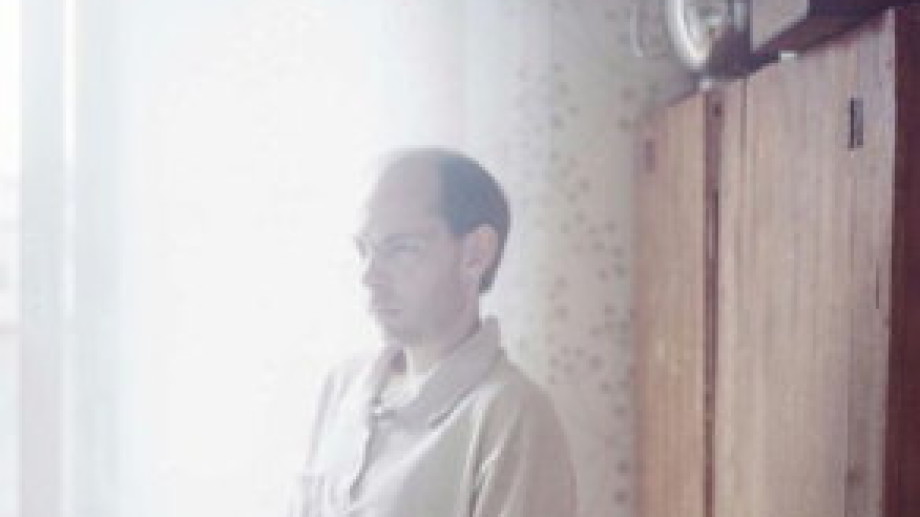
Lava, a central symbol from The End of Time, oozes at an assured pace that defies our sense of time.
As the lone Canadian in the Locarno Critics Academy and one of the only ones at the festival overall, it may seem a bit obligatory for me to write on my nation’s films, but with so little represented this year, it’s important to expose the Canadian(s) among us. There are a couple of quasi-Canadian films at Locarno — among them Los Mejores Temas, directed by Mexican-born Toronto resident Nicolás Pereda — that I won't be able to include, mostly because I’m still awaiting a chance to see them. I'll focus instead on Peter Mettler’s The End of Time, and, more so, Kazik Radwanski’s Tower, the only through and through Canadian production on display this week.
Mettler is a Swiss-Canadian, making him the perfect compromise between the festival and myself. His parents are Swiss, and he divides his time between both countries. His film, however, is not too concerned with these origins, and is instead committed to examining some fairly gigantic and broad questions about the nature of time. Using Einstein as a starting point, Mettler goes further, casting our perception of time as something entirely dependent on infinite variables. Various people in the film offer their own takes on time, and as different arguments accumulate, Mettler suggests that this might be a question without an answer, that we can only begin to fathom the narrowness of our perception.
When the film concedes to state its ideas more overtly through narration and tries to awe us with scientific imagery, its effect is all but muted. The film succeeds best when Mettler adopts a more prominent authorial presence, through expressive shots that evoke the murkiness of the film’s investigation itself, or through the choice to overlap voiceovers from different people, emphasizing the contradictions between them and depriving the viewier of a single reliable voice. Before a never-ending closing sequence of clumsily paced imagery with pretensions at 2001-like ambition, Mettler includes a lamenting statement on how time “became money”. The End of Time alternates between affecting imagery and intriguing discourse and sequences that struggle to maintain the sort of mesmerizing feel Mettler is looking for—but such is this film, to ebb and flow like time itself.

Tower's protagonist, Derek, doing very little.
Radwanski’s film, on the other hand, felt like a port in a storm. I felt right at home with Radwanski’s portrayal of Canadian complacency, mundanity and vapid politeness. Without judging his characters—though, really, there is only one, from whom we never depart; the rest are just passing through his life — Radwanski manages to articulate a certain condition, a fear of fully engaging with life. The protagonist, Derek (played by Derek Bogart), is shown in tight, awkward close-ups, often from the back of his head, lurking closely behind his balding scalp. As we follow this character, who is not without his charms, as he club-hops in search of love, as he works on his modest but considerable computer animation, as he half-heartedly engages in small talk with his family and friends, we become acquainted with his lack of flare, drive, personality and ambition. In other words, Radwanski provides us with a wholly convincing portrait of normality.
The impressively polished cinematography moves fluidly, in contrast to Derek’s all-too-static lifestyle, but still denies us access to the outside world from which Derek subtly resigns. In many ways, Derek remains a mystery to us. We only become familiar with his behaviour and routines, but these elements subtly imply a more comprehensive vision of just who this man is. In the most Canadian breakup scene in cinema history, Derek stumbles and mumbles his way through an overly apologetic speech to his relatively new girlfriend, Nicole (Nicole Fairbairn). She is completely shocked at the out-of-the-blue decision— as is the viewer — and we gain a sense of how Derek backs out of situations that figure him as a responsible adult. Then they get high, naturally.
Derek’s obsession with a pesky raccoon rummaging through trash at night is a plot arc I’ll leave for the viewer to discover, but it offers a metaphor for Derek’s state(lessness). As life nags at him to participate, he looks for the distractions, the loopholes, so maybe he wont have to, and instead can continue to carry on with his head down. With Tower, Radwanski has created an intimate, modest portrayal of a character type usually too marginal for feature films. There’s something about that I find distinctly Canadian. If Locarno only picked one true Canadian production, they at least got it right.
Adam Cook is a freelance film critic and editor for MUBI, based in Vancouver, BC. You can follow his blog, Cinémezzo, and find him on Twitter as @AdamCook.
More dispatches from the Critics Academy participants will be published on FilmLinc.com through the end of the Locarno Film Festival on August 11. Keep watching for their bylines in the coming days!



